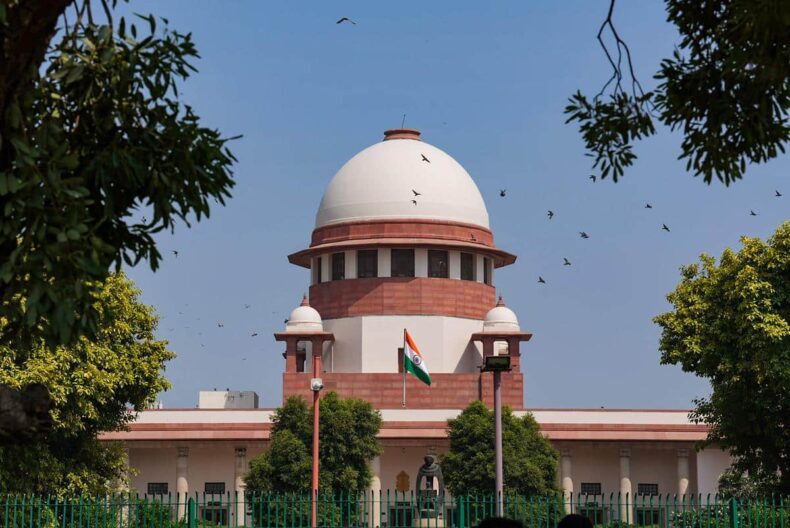Removing the phrase “tends to topple the State,” the amendment also disregards national security, the petitioner said
PIL against the first amendment’s modifications
The Supreme Court has accepted to review a PIL that challenges the first amendment’s modifications to the right to free speech and expression. The petitioner argues that the amendment violates the basic structural concept.
The case was taken up earlier this month by a bench led by Justice Sanjiv Khanna, who stated that there is a “legal question” that emerges “for consideration” and asked the Centre for its thoughts.
The bench, which included Justice J K Maheshwari, stated in its ruling from October 17 that the petitioner, who appeared in person, and knowledgeable counsel for the respondents would be free to file written summaries, not to exceed five pages, along with relied-upon judgments.
Senior Advocate K. Radhakrishnan, claimed in his argument that Section 3(1) of the 1951 Amending Act replaced the original Clause (2) of Article 19 with a new Clause (2). It contained “two objectionable insertions” that allowed limitations also “in the interest of public order” and “in relation to incitement to an offence.” The original clause dealt with
reasonable limitations on the freedom of speech and expression guaranteed by Article 19(1)(a). The phrase “tends to topple the State,” which was in the old Clause (2), was similarly removed in the new Clause (2).
The petitioner claimed that Section 3 (2) of the Amendment Act rendered some legislation legitimate even though they restricted or eliminated the right to free speech.
According to the petition, these two additions protect Sections 124A (sedition), 153A (promoting hostility between different groups on the basis of religion, race, place of birth, residence, language, etc. by words, either spoken or written, by signs, by visible representations, or by other means, and doing acts detrimental to the maintenance of harmony), and 295A (deliberate and malicious acts, intended to outrage religious feelings of any class by insulting its religion or religious beliefs).
According to Article 19 (1)(a), the two dubious expressions that were added “unduly abridge the basic right,” according to the appeal. Radhakrishnan argued that this excessive abridgement “damages, among other things, democracy and republicanism and the supremacy of the Constitution” rather than “advancing or subserving any constitutional purpose.”

Requested to declare the First Amendment invalid
He claimed that by removing the phrase “tends to topple the State,” the amendment also disregards national security. In light of the threats that extremism, terrorism, and religious fundamentalism pose to the idea of a secular democratic republic, he observed, “the glaring exclusion of the word ‘tends to overturn the State’ raises significant alarm.”
The argument requested the court to declare Sections 3 (1)(a) and 3 (2) of the First Amendment invalid because they “damage the core or essential aspects of the Constitution and undermine its basic structure” and are “beyond the modifying competence of Parliament.”













